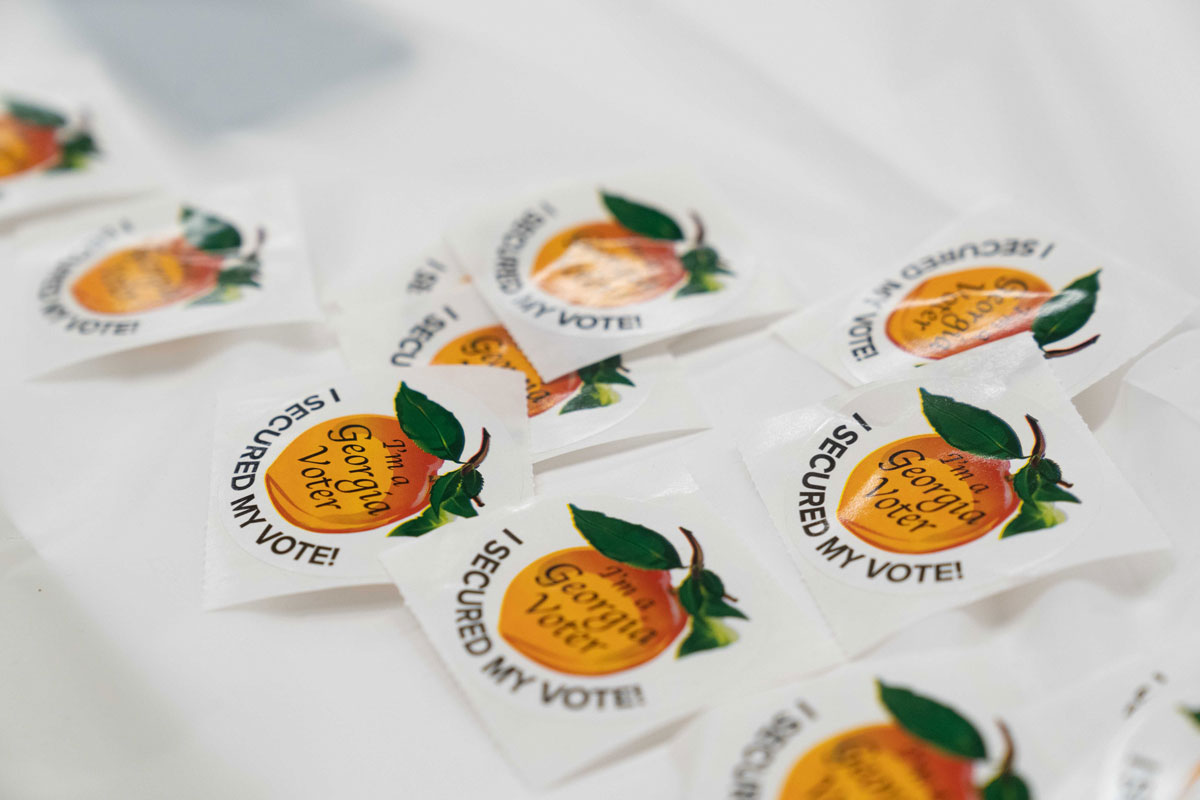
Photograph by Megan Varner/Getty Images
In 2020, the stickers handed out at polling places across Georgia began showing signs of anxiety—relatable, for sure. Previously a cheery illustration of a peach beneath the phrase “I’m a Georgia voter,” the item acquired another sentence, in shoutier lettering: I SECURED MY VOTE! The update was introduced by Secretary of State Brad Raffensperger following a period of heightened attention to how Americans vote: In the past dozen years, a number of states have enacted measures making it more difficult, such as stricter voter-identification requirements. Many restrictions disproportionately affect people of color—in an effort to treat problems, experts say, that don’t meaningfully exist. The nonpartisan Brennan Center for Justice, which tracks such restrictions, has calculated that onerous ID requirements, for instance, “address a sort of voter fraud more rare than death by lightning.”
The origins of the “I voted” sticker are hazy, but they’ve become ubiquitous, allowing voters to sport their civic achievement while broadcasting a bit of peer pressure; in 1984, Vice President George H.W. Bush wore one that said, “I voted today—have you?” The introduction of the secret ballot in the 19th century made voting a lonelier and more somber affair than it had been previously, and may have contributed to falling turnout rates. The original “I voted” stickers offered a little good cheer and fellow feeling.
In the emotional sense, then, the new ones are a departure, hinting at some darker possibility. Semantically, the message isn’t immediately clear: Is “voting” the same thing as “securing one’s vote”? What was I securing it against? “It’s bringing it up,” said Morehouse College political science professor Adrienne Jones. “Someone is leaving the polls like, Yeah, I secured my vote. They’re in that conversation about the idea that the vote is not secure.”
“I’ve never seen such a thing before. It obviously plays to Republican concerns about elections being rigged or stolen,” said Rick Hasen, an election law expert at UCLA School of Law, adding that he thinks the sticker, foregrounding concerns over security, “underplays the democratic virtue of exercising one’s franchise.” A spokesperson for Raffensperger, a Republican up for reelection this fall, said the Secretary’s concern is “striking the right balance between voter convenience and election security,” and that language about “securing” one’s vote underscores the fair exercise of the franchise: “It’s only democratic if people believe in the results.”
This article appears in our November 2022 issue.














